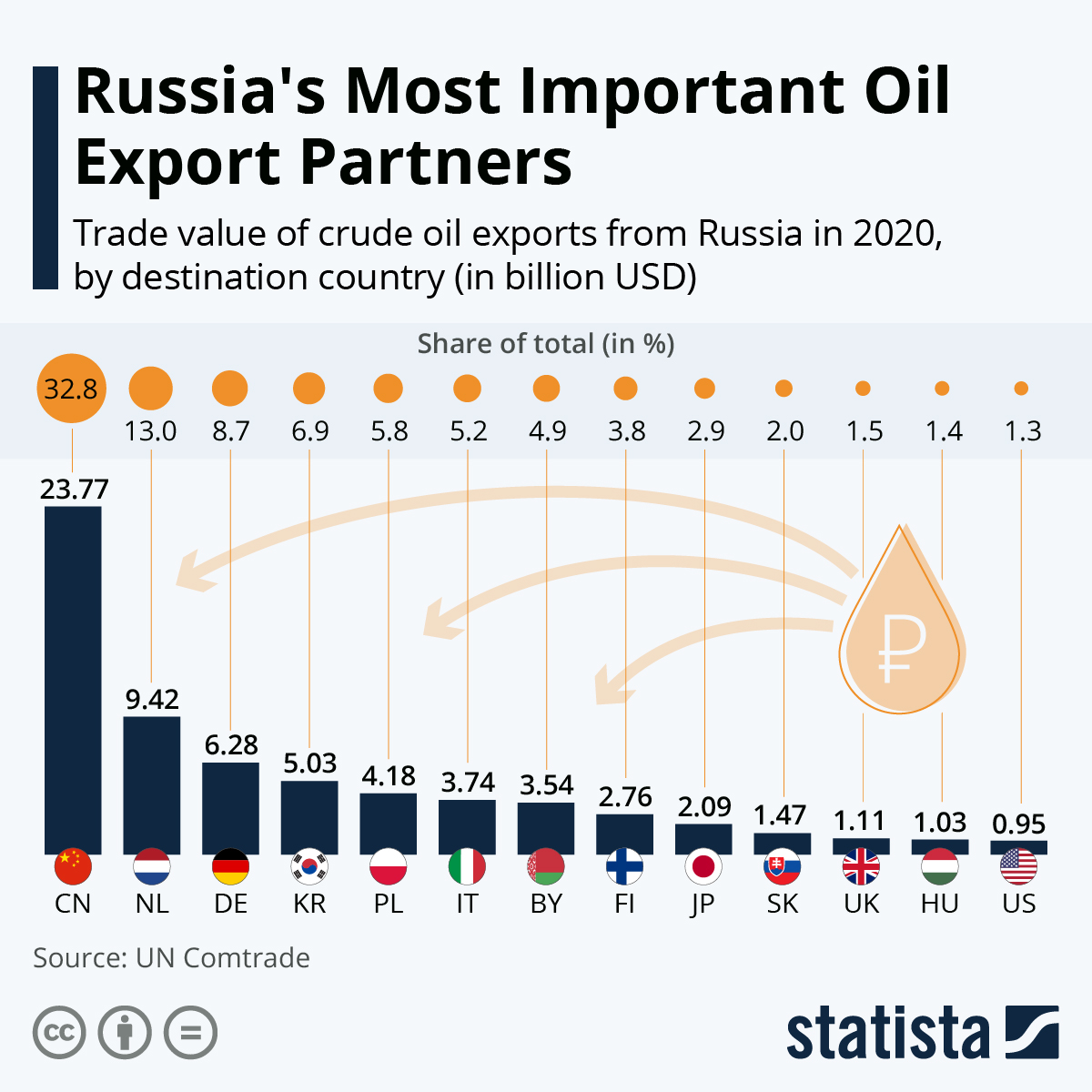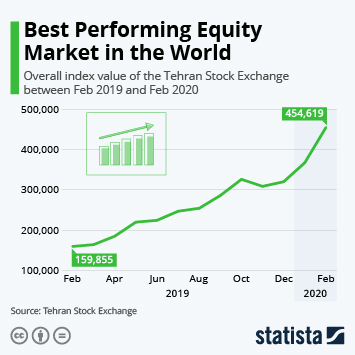In what marks the latest escalation of sanctions placed on Russia as a result of it Ukraine invasion, EU countries announced last night that they had agreed to a substantial ban on the import of Russian oil. After opposition voiced by Hungary, imports will only be halted on oil that arrives by sea, but the sanctions still account for two-thirds of all Russian oil supplied to the EU. Russia had been delivering 27 percent of the EU's imported oil and European Council chief Charles Michel said on Twitter that the deal means "cutting a huge source of financing for (Russia's) war machine", and puts "maximum pressure on Russia to end the war."
As our chart using the latest UN Comtrade data highlights, the combined economic effect of an EU import stop is significant, despite China being the largest recipient of Russian oil by a large margin. Even just taking into account the countries included at the top end of the list as displayed here, over 40 percent of Russia's trade value from oil exports would be removed in the case of a complete ban - something which will become closer to reality over the next few months after pledges from Germany and Poland to stop importing pipeline oil by the end of the year, too. This would mean the ban eliminates 90 percent of Russia's oil imports to the EU.





















